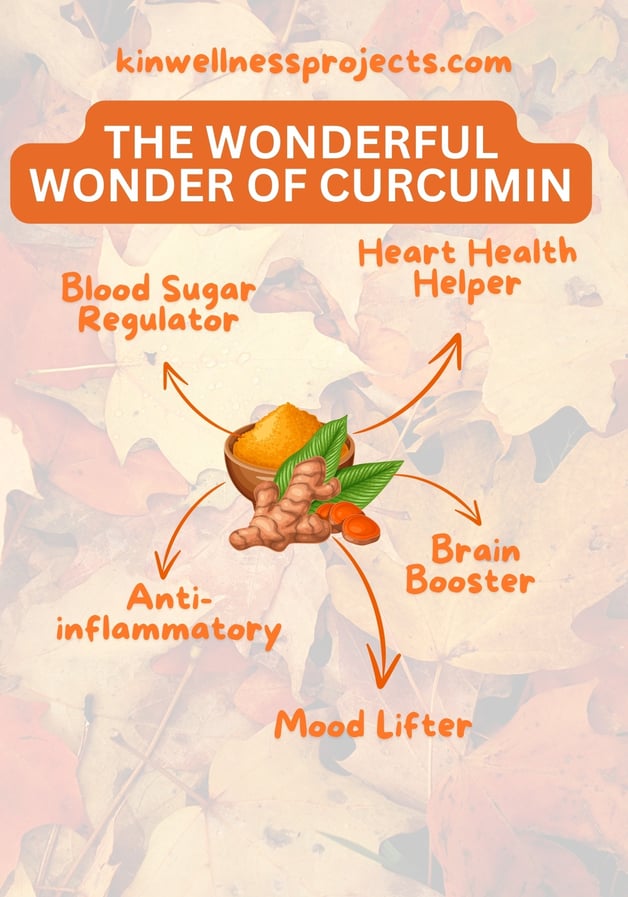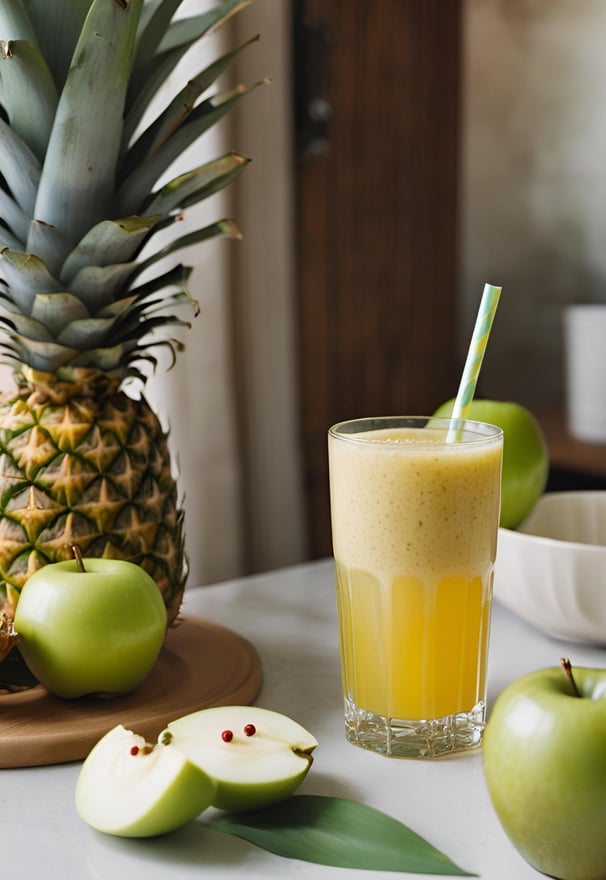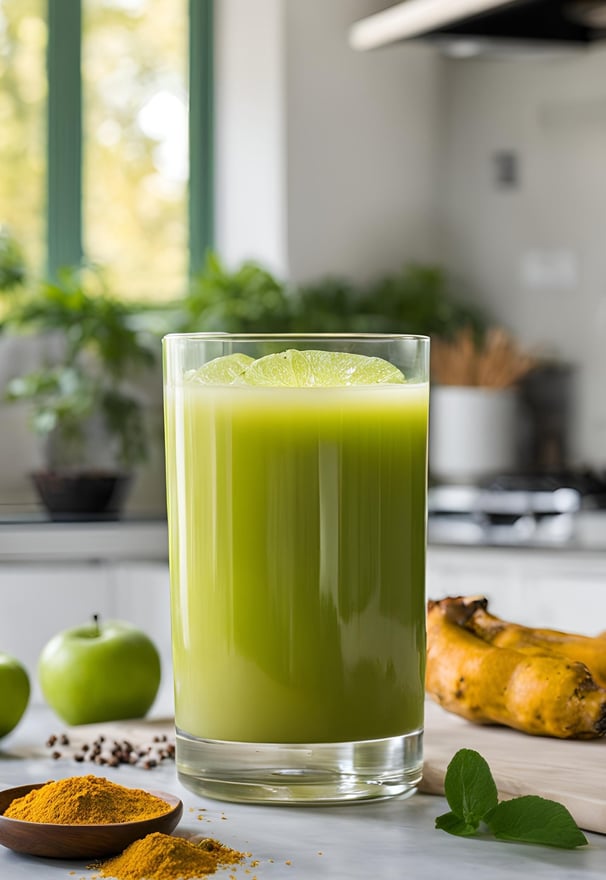Healthy Drinks: Turmeric: Ancient Spice, Modern Health Hero? The Benefits of Curcumin
Discover the incredible power of turmeric, an ancient spice with modern health benefits. Learn the benefits of turmeric and how this natural compound found in turmeric can fight inflammation, boost brain health, and improve your overall well-being.
WELLNESS
Kin
3 min read


Introduction:
Do you know that turmeric is the most essential ingredient on daily menus of Asian countries, for example, India, Bangladesh, Indonesia, and Malaysia?
I have searched for this information about curcumin, and I am so amazed at its benefits. All this while, I just use it for frying fish and chicken without realizing how great it can be if we use it wisely!
Turmeric, the vibrant yellow spice gracing curries and golden milk lattes, has been used for centuries in traditional medicine. Its active ingredient, curcumin, has taken center stage in recent years for its potential health benefits. But is it all it's cracked up to be?
Let's dive into the research and explore what we know about curcumin's effects on the body, who might benefit most, and some important precautions to consider.
What is all this hullabaloo about curcumin?
Curcumin is the compound that gives turmeric its distinctive color and flavor. It's been studied extensively for its potent anti-inflammatory and antioxidant properties. These properties are thought to be the key to curcumin's potential benefits for a variety of conditions, from chronic pain to heart disease.
Potential Benefits, Backed by Science (and Some Hype):
Anti-inflammatory Superstar: Multiple studies suggest curcumin may help reduce inflammation throughout the body. This could be beneficial for people with conditions like arthritis, inflammatory bowel disease, and even certain types of cancer.
Brain Booster: Some research indicates curcumin might enhance brain function and protect against neurodegenerative diseases like Alzheimer's. More research is needed to confirm these effects.
Heart Health Helper: Curcumin may improve heart health by reducing cholesterol levels, improving blood pressure, and even helping prevent blood clots.
Blood Sugar Regulator: Studies have shown promising results for curcumin's potential to help regulate blood sugar levels and reduce the risk of diabetes complications.
Mood Lifter: Some evidence suggests curcumin may have antidepressant effects, although more research is needed in this area.
Who Should Be Cautious with Curcumin?
Gallstone Problems: Curcumin can stimulate the gallbladder, which could be problematic for people with gallstones.
Kidney Stone Risk: If you're prone to kidney stones, high doses of curcumin might increase your risk.
Bleeding Risk: Curcumin may slow blood clotting, so it's important to talk to your doctor if you're taking blood thinners.
Pregnancy and Breastfeeding: There isn't enough research to confirm the safety of curcumin during pregnancy and breastfeeding, so it's best to avoid it.
How to Take Curcumin: Tips and Tricks
Supplements vs. Food: While turmeric is a delicious spice, the amount of curcumin in food is relatively low. Supplements can offer higher doses, but it's important to choose a reputable brand.
Absorption: Curcumin is not easily absorbed by the body on its own. Pairing it with black pepper or a healthy fat can significantly increase its absorption.
Dosage: It is suggested to take 1 teaspoon for beginners; eventually, you can double the dosage to 2 teaspoons.
Curcumin shows promise as a natural way to support health, but it's not a miracle cure. More research is needed to fully understand its benefits and risks. If you're considering taking curcumin supplements, talk to your doctor to see if it's right for you.
And for me, I better use the curcumin that I have in my kitchen to make a good warm golden curcumin milk, or a combination of curcumin and warm coconut milk.
Have you tried making a juice of curcumin?




"This post contains affiliate links, which means I receive a commission if you choose to purchase through them. This helps support the creation of free content like this.
Disclaimer: The medical information on this site is provided as an information resource only and is not to be used or relied on for any diagnostic or treatment purposes. This information is not intended for patient education or to be used as a substitute for professional diagnosis and treatment. Please take a look at your healthcare provider before making any healthcare decisions or seeking guidance about a specific medical condition. Kinwellnessprojects.com shall have no liability for any damage, loss, injury, or liability whatsoever suffered as a result of your reliance on the information contained on this site.
